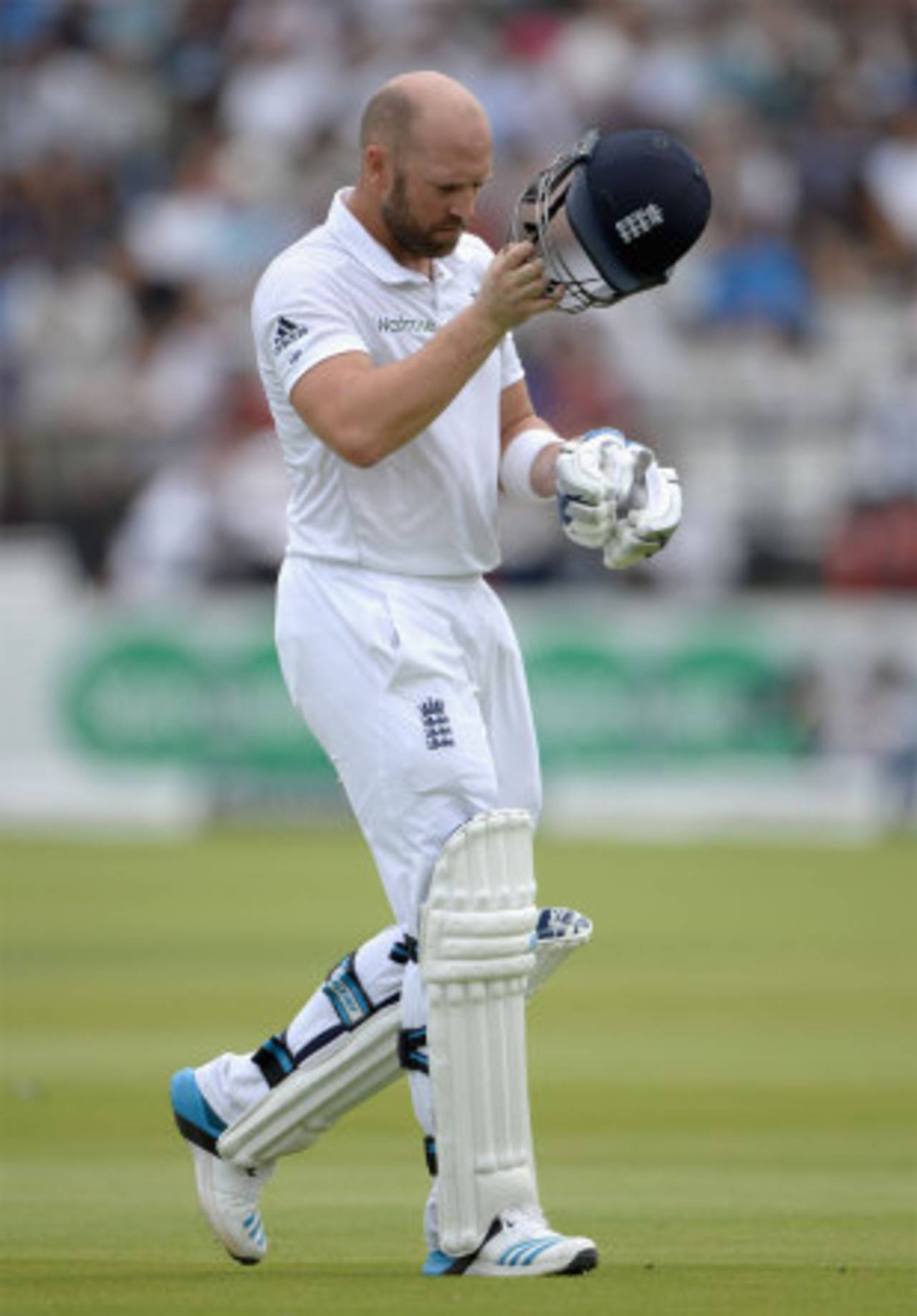So another pillar of England's glory years is washed away.
Matt Prior's decision to take the rest of the summer off to recuperate from injury almost certainly ends an international career that has encompassed some of the brightest moments in England's recent Test history.
When England became the first side to win three Tests in a series in Australia by innings margins, Prior averaged 50 with the bat and claimed 23 catches. When England whitewashed India, at the time rated No. 1 in the Test rankings, in 2011, Prior averaged nearly 70 with the bat and again kept tidily. And when England came from behind to win in India in 2012, Prior again averaged 50 and held his own as keeper despite the workload demanded by two spinners and turning wickets.
The statistics are good - 4,099 Test runs and an average of 40.18 suggest he could probably have made it as a specialist batsman - but it was Prior's selflessness that rendered him one of the most valuable players of his generation. His first Test century, on debut in 2007, was typical: it provided the acceleration England required before a declaration. His final Test century, in Auckland in March 2013, was a masterful display of restraint and determination and saved a series that looked lost.
One image will endure: when Prior was informed he had been dropped from the Ashes team for the Boxing Day Test in Melbourne at the end of 2013, he immediately congratulated and hugged his replacement, Jonny Bairstow, before giving him catching practice. You can tell a great deal about people from the way they react to disappointment. In such circumstances, Prior shone.
There were some hiccups along the way. His struggles, particularly with the gloves, towards the end of 2007 saw him dropped and he was rarely, by the very highest standards, as happy standing-up to the spinners as he was standing back to the seamers.
But it was often in adversity that Prior's ability came to the fore. And just as he responded to team crisis with his best performances, so he responded to his own failings by working harder than ever and coming back a better player. Until a recent dip, his keeping since his return to the team in late 2008, had been reassuringly sound.
For that reason he should probably not be written-off completely now. Like Jonathan Trott, he could return. But he will be 33 by the start of next season. It may well be, in time, that he is included - alongside Graeme Swann, Trott and even Andy Flower - in a list of those crushed by the remorselessness of England's schedule and the intensity of its environment. 32-year-olds should not be so broken.
So a return is unlikely. England need to find a replacement now and, if they decide the time is right to select
Jos Buttler, need to give him a lengthy run in the team to allow him to develop. He, too, will have grim days. But he will benefit from the experience and needs to feel that he is more than Prior's deputy. England must not go back to the days when they selected highly promising young keepers - the likes of James Foster and Chris Read - and then abandoned them after they struggled to adjust.
This is the right decision, though. The Prior of 2014 threatens to compromise the reputation of the fine cricketer that represented England with distinction. He is clearly not as agile with his keeping and that lack of confidence has fed into his batting, where his shot-a-ball mentality was never going to succeed in Test cricket. Some of the chances he has put down have been desperately tough; several have not been. Many of the byes he has conceded have been no fault of his; but an uncomfortably large amount have been. He deserves credit for acknowledging that. He deserves credit for putting the team before himself.
Prior's comments raise questions about England's backroom operation, though. How was it was a man so palpably unfit, a man who had kept in only one Championship game in the season ahead of the first Test, selected for four Tests in succession? How was it that, despite the army of medics, the apparent professionalism of a system that scans and measures and monitors everything players do, a wicketkeeper was allowed to play when he had a quad injury and required an operation on his Achilles?
And why was it that, even after a Test in which Prior's performance was clearly inadequate, England's captain should suggest his selection was all but guaranteed should be want to continue? Has the England dressing room become so cosy a place that even the injured can be accommodated? Loyalty is a wonderful quality. But when it becomes blind, when it is to an individual and not a cause, then it becomes a weakness.
It is understandable that Cook wanted Prior around, though. With Trott and Swann gone, he is missing the trusted senior players he once had and needed Prior's experience in the field, in particular. James Anderson and Stuart Broad, who looks little fitter than Prior, need to answer their captain's call now.
There has been talk of a new era in England for some time now. And that is only right: the team must renew and refresh.
But that old era, the era of Prior and Cook and Anderson and Swann and Trott and Andrew Strauss and Kevin Pietersen… it was quite something. There is no guarantee England will ever see the like again.
George Dobell is a senior correspondent at ESPNcricinfo
